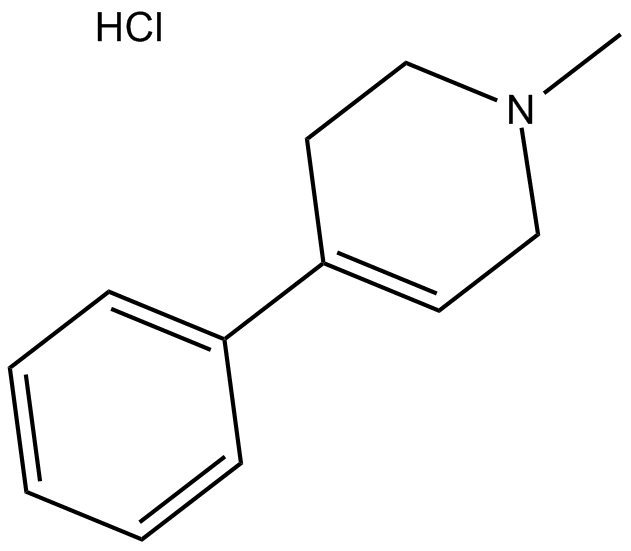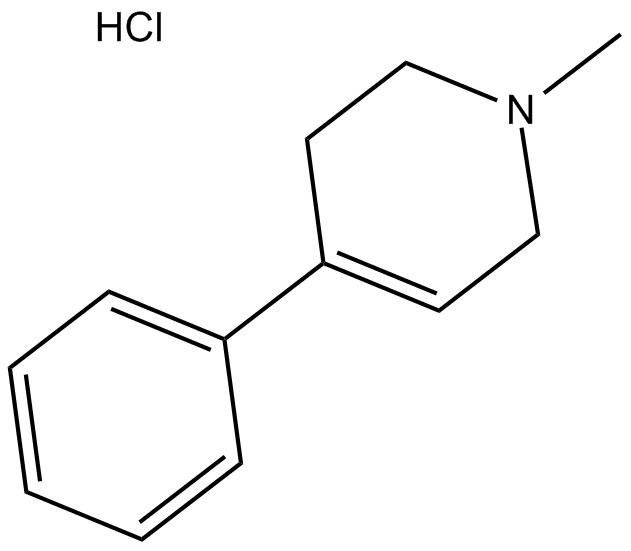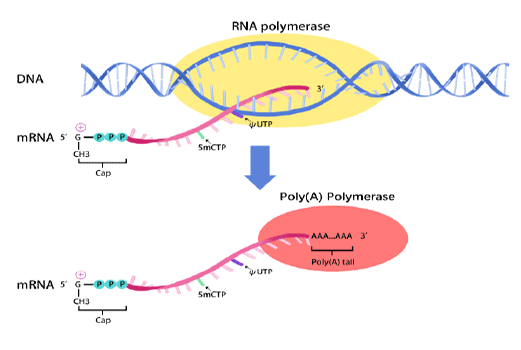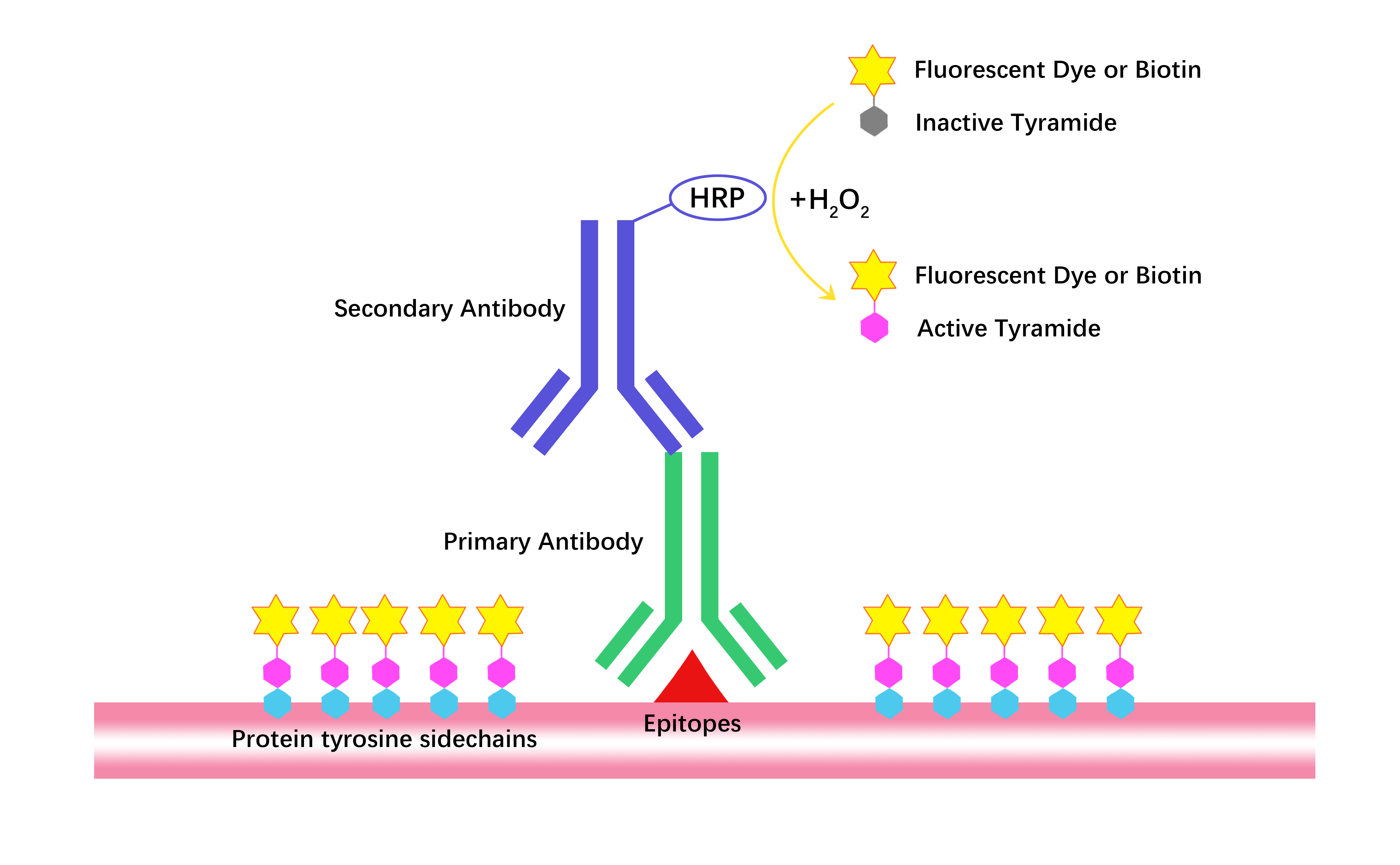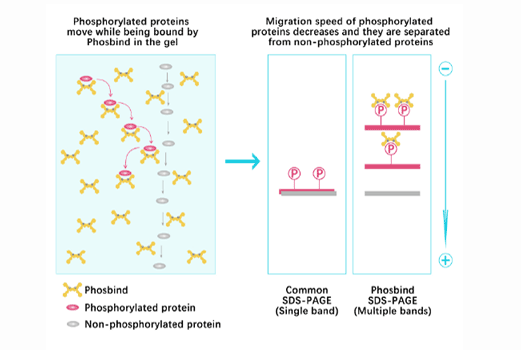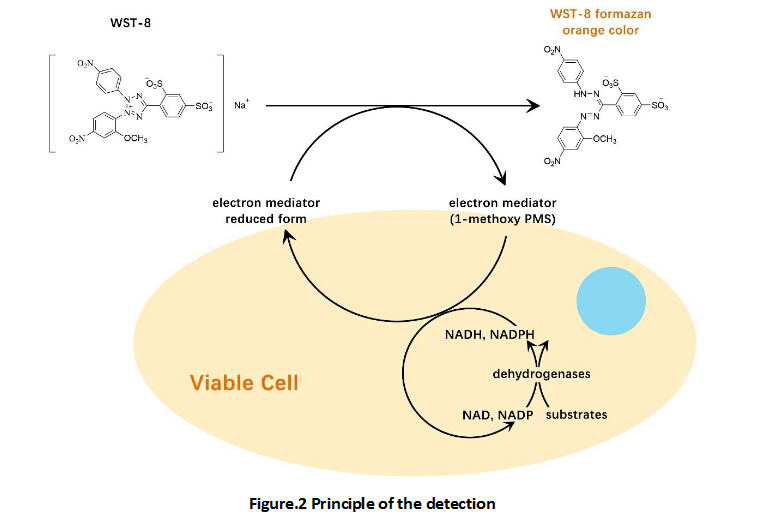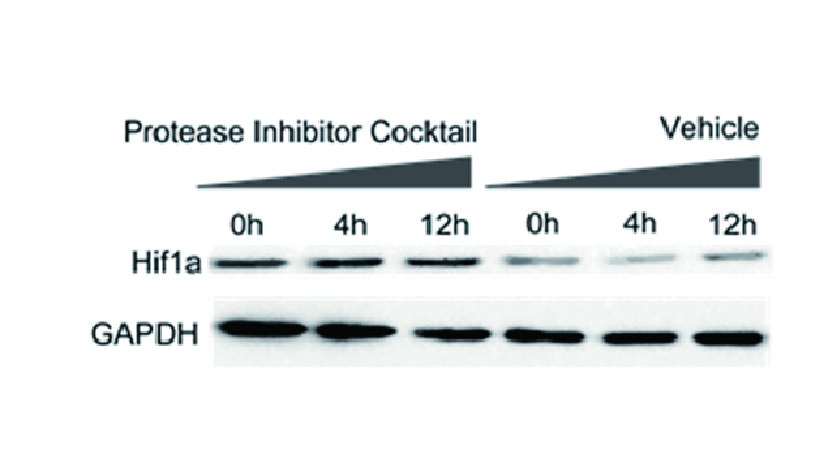MPTP hydrochloride
MPTP hydrochloride (CAS 23007-85-4) is a neurotoxic small molecule commonly utilized in neurological research to induce Parkinson's disease-like conditions in animal models. Primarily, MPTP is converted metabolically to its toxic metabolite MPP?, which selectively damages dopamine-producing neurons in the substantia nigra. In vitro studies demonstrate that MPTP inhibits neuromuscular transmission, evidenced by an IC50 of approximately 53 μM in mouse phrenic nerve-hemidiaphragm preparations. In vivo, administration of MPTP to squirrel monkeys induces dopaminergic neuronal degeneration observable through biochemical markers and pathological examination. Clinically, MPTP-based models are widely used to evaluate therapeutic strategies for Parkinson’s disease, including treatments for levodopa-induced dyskinesia.
| Physical Appearance | A solid |
| Storage | Store at -20°C |
| M.Wt | 209.72 |
| Cas No. | 23007-85-4 |
| Formula | C12H16ClN |
| Synonyms | MPTP |
| Solubility | ≥21 mg/mL in H2O; ≥20.52 mg/mL in DMSO with gentle warming and ultrasonic; ≥25.45 mg/mL in EtOH with gentle warming and ultrasonic |
| Chemical Name | 1-methyl-4-phenyl-3,6-dihydro-2H-pyridine;hydrochloride |
| SDF | Download SDF |
| Canonical SMILES | CN(CC1)CC=C1c1ccccc1.Cl |
| Shipping Condition | Small Molecules with Blue Ice, Modified Nucleotides with Dry Ice. |
| General tips | We do not recommend long-term storage for the solution, please use it up soon. |
Quality Control & MSDS
- View current batch:
Chemical structure
